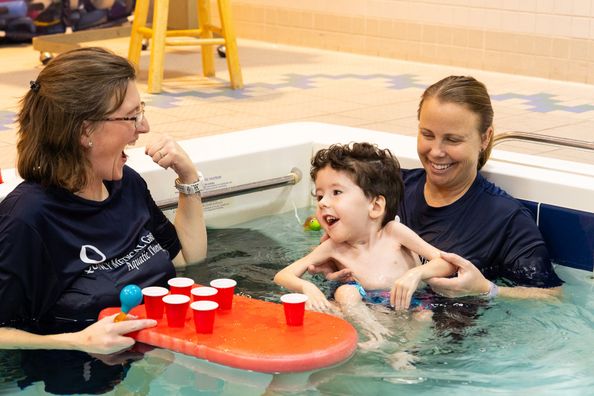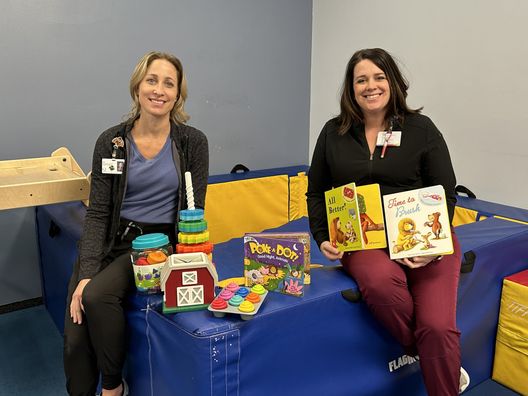“MOO-OOM!!! He’s in my room again!”
“SHE BROKE MY AIRPLANE!”
“I’m so booooored.”
“He won’t let me play with him!”
“It’s MY turn!”
“BUT I WANTED THE BLUE POPSICLE!”
No more school, no more books, no more…you can probably see where this is going. Summer is great! For kids that is. But for parents, it can be an entirely different story. Sometime around the second or third week after school lets out, the novelty of break starts to wear off for mom and dad. Tattling, whining, arguing, fighting, tantrums, and aggression–all of these can increase during the summer months. If your kids are melting down, there are several possible reasons.
- Too much screen time: Time spent playing video games, watching TV, or using smart phones is time not spent being physically and socially active.
- Boredom: I know the last time you felt bored was sometime prior to the Clinton administration, but keep in mind that boredom can be a very uncomfortable experience for children. Kids with too much time on their hands are prone to pestering, whining, bickering, and other things that can make parents feel like imploding.
- Changes in routine/no routine: Between relaxed bedtimes, sports games and practices, camps, meals on the go, and travel, summer can wreak havoc on a family’s daily schedule, not to mention mom and dad’s patience.
- Poor social problem-solving skills: Kids are not born with the ability to handle differences of opinion effectively. In their developing little minds, swatting older sister for taking their Barbie doll makes perfect sense.
While the urge to hide under the bed with a bag of potato chips for the next month may be overpowering, parents do have other – healthier – options for decreasing kids’ bummer behaviors.
- Set a schedule and stick to it. Well, mostly stick to it. It is summer after all. It’s okay to push back bedtime and wakeup times but try to be consistent. An 8:30 bedtime one night followed by an 11:15 bedtime the next night can create cranky kiddos. Try to keep meal times consistent as well. As it gets closer to the start of school, tighten that schedule up to get everyone prepared.
- Post your child’s schedule where they can see it. For young children or children with ADHD, Autism, or developmental delays, visual schedules are a great tool for keeping kids engaged and on-track during the summer. A visual schedule includes words and pictures so that children can easily recognize what’s next. (More details on visual schedules coming in a future post.)
- Keep kids active throughout the day. Participation in team sports, swim lessons, running clubs, yoga, and walks are all good ways for kids to stay active and reduce stress or tension for the whole family. Check out summer programs for kids at your local park district or YMCA. If it’s too late to sign up, challenge your kids to seek new ideas for physical activity using YouTube or Pinterest. However, be careful not to overschedule. Kids need time to just relax as well.
- Teach and practice effective social problem-solving skills. Teach them to say, “May I take a turn please?” and “I don’t like when you do that; please stop.” Model this during your interactions with your children; they will do what they see. Of course, it’s easier to teach these skills when everyone is in a good mood. If you wait and try to introduce new skills when kids are already irritated or arguing the outcome will involve lots of shouting and sobbing. The kids will probably cry too.
- Help kids learn to entertain themselves without electronics. Reading a book or playing with blocks just isn’t as stimulating or exciting as screen time for some children. In order to reduce summer boredom, set limits on screen time each day and enforce them. When children complain about being bored, help them learn to tolerate this feeling and funnel it into creative play using household objects, craft supplies, or even those boring old blocks. Start with empathy, “Being bored feels yucky, huh? Do you want some help dealing with that?”
- Kids need responsibilities around the house. Chores help build self-esteem and independence skills. Assign daily and weekly jobs to kids based on their age and abilities. Many parents find it helpful to require that chores or tasks be completed before children have access to their electronics. Sure, you might have to keep their devices in another zip code in order to enforce this but your kids will thank you…in a decade or two.
- Create learning opportunities. Setting aside time during the remaining days of summer to read, write, or practice math or spelling is a good way to stop the summer slide, keep kids challenged, and get them back in the mode of learning. Have them write about the movie they just saw or read an article online about their favorite animal. Get math flashcards at the local dollar store and challenge them to beat their own time each day. If they are particularly salty, have them spell out their grievances instead of their usual whining and arguing. For kicks, you can try it too: M‑O-M-M‑Y N‑E-E-D‑S A N‑A-P B‑E-F-O-R‑E S‑H-E L‑O-S-E‑S I‑T.
With some planning, a whole lot of patience, and maybe a bag of chips just in case, mom and dad can stop a Bummer Summer in its tracks.
Thanks for reading!
Until next week,
Nikki
*The content in this blog should never be considered an alternative to quality medical or mental health care and is intended to be a source of information only.
Health Topics:







